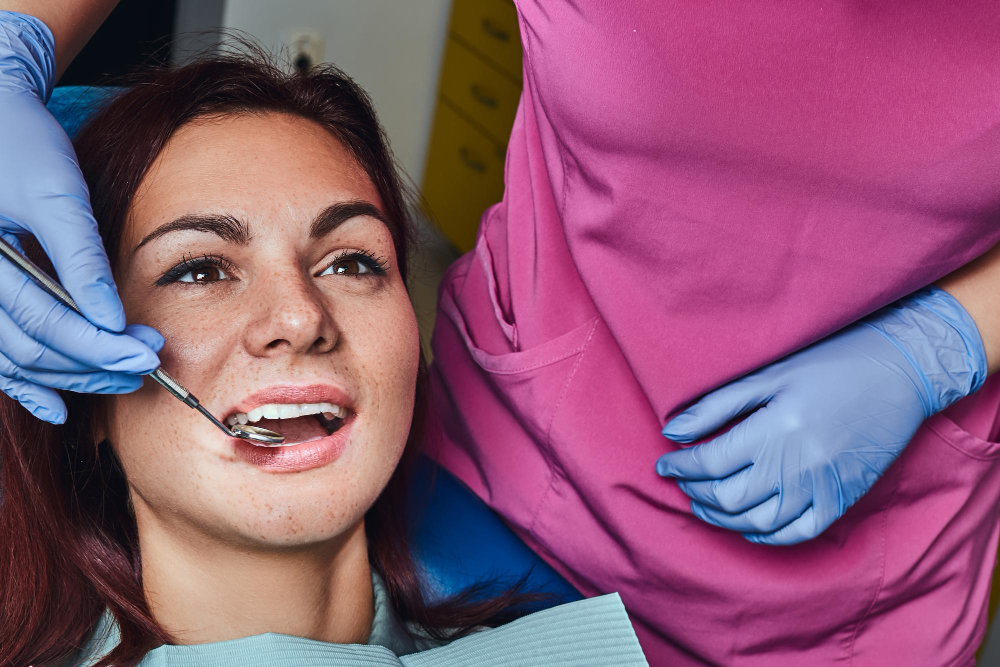
Pregnancy is an exciting journey, but it also comes with many questions—especially when it comes to health and medical care. One of the most common concerns is whether dental treatments are safe during pregnancy. The good news? Most dental procedures can be safely performed when proper precautions are taken. In fact, maintaining good oral health is essential for both the expectant mother and the baby.
Below is everything you need to know about dental care during pregnancy, from safe procedures to the best timing for treatment.
Why Oral Health Matters During Pregnancy
Pregnancy triggers hormonal changes that can impact the mouth in unexpected ways. Higher levels of progesterone and estrogen may increase the risk of:
- Pregnancy gingivitis (inflamed or bleeding gums)
- Gum infections
- Tooth sensitivity
- Dry mouth
- Increased plaque buildup
Ignoring oral problems doesn’t just risk discomfort—it can lead to more serious dental issues that are harder to treat later. That’s why regular dental check-ups remain important throughout pregnancy.
Is Dental Treatment Safe During Pregnancy?
Yes—most routine dental care is considered safe.
Dental professionals commonly treat pregnant patients and adapt their approach to ensure comfort and safety. Here’s a breakdown of what’s typically safe:
Dental Cleanings
Regular cleanings are strongly recommended and help control pregnancy-related gum inflammation.
Fillings, simple restorations, or treating cavities
Delaying cavity treatment can cause infections, which pose a higher risk than the treatment itself.
X-rays with protection
Dental X-rays can be performed when necessary, especially during an emergency, using a lead apron for shielding.
Local anesthesia
Common anesthetics are generally considered safe when used in appropriate amounts.
When Is the Best Time for Dental Treatment?
1st Trimester (Weeks 1–12)
Routine check-ups are fine, but many professionals avoid major procedures unless urgently needed due to early fetal development.
2nd Trimester (Weeks 13–27)
This is considered the ideal window for most dental treatments. The mother is usually more comfortable, and the baby is past the most sensitive developmental stage.
3rd Trimester (Weeks 28–40)
Treatment is still possible, but long appointments can be uncomfortable. Slight adjustments, like reclining the chair minimally, help avoid dizziness or pressure on major blood vessels.
Which Dental Treatments Should Be Postponed?
Some procedures are better delayed unless they’re absolutely necessary:
- Cosmetic procedures (teeth whitening, veneers)
- Elective surgeries
- Complex treatments that involve long chair time
The guiding principle is simple: urgent and preventive care first, cosmetic or non-essential care later.
Safe Medication Use During Dental Treatment
Dentists typically choose medications that are well-studied and considered safe during pregnancy. Still, it’s essential to:
- Inform your dentist about your pregnancy (even early suspicions)
- Share any medications, vitamins, or supplements you’re taking
- Avoid self-medicating for dental pain
A collaborative approach between your dentist and obstetric provider ensures the safest outcome.
Tips for Maintaining Strong Oral Health During Pregnancy
Here are a few habits that support your dental health during this unique phase:
- Brush twice daily with fluoride toothpaste
- Floss every day
- Rinse after vomiting if morning sickness is an issue
- Limit sugary snacks and drinks
- Drink plenty of water to prevent dry mouth
- Schedule regular dental check-ups
These simple steps help prevent issues before they start.